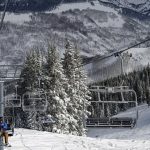The OIA¡¦s recommendation to keep the OR Summer and Winter Markets in Salt Lake City was contingent on one set of factors, namely the state of Utah¡¦s ¡§continued partnership with the OIA to promote a recreation economy and to protect its recreation gems.¡¨
Environmental initiatives like this are not new for the OIA. The fight to keep wilderness wild has been an on-going battle for years now, but BOSS has seen a definite increase in the number of individual companies that are taking the environmental message seriously, and investing in making their business green.
Clif Bar has been leading the way with numerous moves to reduce the ecologic impact of its production facilities. The company has invested in the first Native American-owned wind-power plant, eliminated shrink-wrap from its packaging, hired a staff ecologist to guide the company's environmental efforts, and continues to use recycled cardboard in the production of its caddies.
While certainly not the cheapest way to power a factory, potentially the easiest step a company can take to make their production greener is to purchase electricity from renewable power sources. Numerous regional companies are making this option available, and last year Black Diamond Equipment¡¦s CEO, Peter Metcalf, decided to purchase wind power for the first time. Black Diamond¡¦s initial commitment to wind power will reduce by over 111 tons the amount of COU emissions released in a single year.
This year the company has decided it will add solar to the mix, further reducing the company¡¦s impact. Black Diamond has partnered with a local solar power company, who will be installing panels on the BDE facility in Salt Lake City. These panels will provide enough electricity to power BDE¡¦s retail store. Additionally, Metcalf told BOSS that BDE will be making a six-figure capital expenditure against different clean energy initiatives each year.
Vibram¡¦s CEO, Tony Post, prominently displayed at OR his company¡¦s effort at reducing waste . ¡§Every day we hauled off dump trucks full of rubber,¡¨ he said. ¡§So, we wanted to find a way to reduce that and came up with a completely new process to recycle waste that does not have as much of a premium price attached to it.¡¨
Vibram has formulated a special rubber compound that recycles the trimmings from the production on new soles. Other companies, like Nike, have implemented similar programs, but Vibram¡¦s new process allows for nearly 1/3 of the content to be recycled rubber, while older processes can only use around 5%. The new outsole is called the ¡¥Vibram Ecostep.¡¦
Seattle Sports is also reducing the emissions from their dry-bag manufacturing. The company is now offering a PVC-free dry-bag in addition to product with the standard construction.
Mike Moore, president and founder of Seattle Sports, told BOSS, ¡§PVC releases greenhouse gasses throughout the production process, and the EU is placing limits on the amount of PVC used. I¡¦m sure other countries will soon follow, so we are offering an alternative.¡¨
Individual initiatives are very positive first steps, but the International Organization for Standardization offers a broader certification that looks at the whole company and the environmental impact it causes. The ISO 14001 & 14004 certifications for Environmental Management Systems provide guidelines and monitoring systems to efficiently reduce full-company impacts.
Grivel was one of the first outdoor equipment manufacturers to attain ISO 14001 Certification. Grivel¡¦s principal, Gioachino Gobbi hopes that the move will encourage other outdoor companies to seek the certification. “All of us who enjoy the uniqueness of the mountain environment need to respect and preserve it for ourselves and for future generations,” he said.
The process is detailed and rather difficult to attain; however more and more companies are looking at this as a necessary aspect of doing business. The most recent numbers published by ISO show that between 2001 and 2002 ISO 14001 certifications increased by 34.5% to cover 49,462 companies in 118 countries.
While many of the companies showing at OR are increasing their efforts to preserve and protect the lands that fuel the growth of the outdoor industry, Woolrich seems to be reversing its strong record of land conservation.
For years Woolrich has maintained over 4,800 acres of wilderness in its home county, but recently the Sierra Club reported that the company had quietly sold 1,170 acres of land, including one 322-acre parcel to a developer who plans to turn into a suburban-style neighborhood. Compounding the problem, the Conservation Fund said they offered market value for the land in an attempt to preserve it. Woolrich has said it has no plans to sell off further acreage, all of which will be open to the public for recreation.












